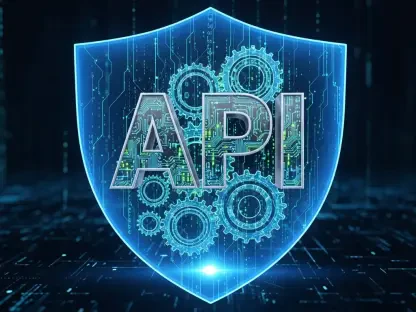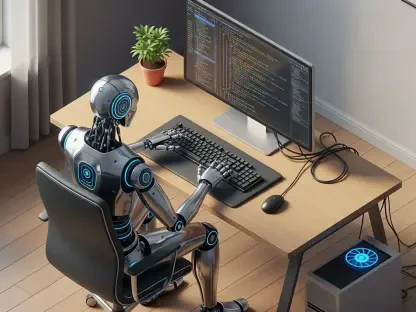The Democratization of Code: A New Era in Technology
In an era where technology permeates every aspect of professional life, a staggering shift is underway: software development is no longer the exclusive domain of trained engineers but a skill increasingly accessible to all through innovative tools and platforms. This transformation challenges the traditional boundaries of who qualifies as a developer, as coding becomes a feasible task for individuals across diverse fields. The implications are profound, reshaping not only how tasks are performed but also how industries operate in a digital landscape.
This trend carries significant weight in a tech-driven environment, altering workforce dynamics by blurring the lines between technical and non-technical roles. Organizations are rethinking strategies to incorporate broader skill sets, while cultural norms shift toward expecting a baseline of technical proficiency from all employees. The impact is visible in hiring practices, project management, and even daily operations, as companies adapt to a reality where software creation is a shared responsibility.
Key drivers behind this change include artificial intelligence, low-code and no-code platforms, and open-source frameworks. AI tools assist with code generation, while intuitive platforms allow non-experts to build applications with minimal training. Open-source communities further democratize access by providing resources and collaborative spaces, effectively lowering barriers and enabling a wider population to contribute to software solutions.
The Rise of Technical Literacy Across Professions
Emerging Tools and Trends Enabling Non-Developers
The proliferation of user-friendly technologies has empowered professionals outside traditional IT roles to engage in software development. AI assistants, such as GitHub Copilot and ChatGPT, provide real-time coding support, translating ideas into functional scripts without requiring deep programming knowledge. Similarly, low-code and no-code platforms offer drag-and-drop interfaces, making application creation as simple as assembling building blocks.
These advancements have opened doors for individuals in marketing, operations, and customer service to automate workflows and develop tailored solutions. For instance, a marketing specialist can now design a customer tracking tool without relying on a dedicated developer. This shift not only boosts efficiency but also fosters innovation by allowing domain experts to address specific challenges directly through custom applications.
Workforce Transformation and Expectations
Recent findings from the 2025 State of Tech Talent Report reveal that fluency in AI tools is now a critical hiring criterion across industries. Automation has replaced many entry-level tasks, pushing employers to seek candidates who can leverage technology to enhance productivity. This data underscores a broader movement where technical skills are no longer optional but essential for career progression.
Technical literacy is rapidly becoming a fundamental competency, comparable to reading and writing in earlier eras. Modern knowledge workers are expected to script, configure systems, and query databases as part of routine responsibilities. This evolution redefines job descriptions, embedding software-related skills into roles that previously required little to no technical expertise.
The transformation extends beyond individual capabilities to organizational expectations. Companies are prioritizing upskilling initiatives, ensuring that employees in sales, HR, and finance can contribute to digital projects. This comprehensive approach signals a future where the ability to interact with code is a standard requirement, reshaping the landscape of professional qualifications.
Challenges in a Decentralized Software Landscape
The democratization of software development, while empowering, introduces significant hurdles that organizations must navigate. Decentralized coding efforts often lead to security vulnerabilities, as untrained individuals may overlook critical safeguards. Inconsistent practices can further complicate integration, while the rise of shadow IT—unauthorized systems built outside formal oversight—poses risks to data integrity.
To address these issues, structured solutions are essential. Implementing guardrails, such as standardized templates and pre-approved tools, can guide non-developers in creating secure and compatible software. Mentoring programs, pairing experienced engineers with novices, also help mitigate errors by providing hands-on support and fostering best practices across teams.
Cultural challenges add another layer of complexity to this shift. Engineering leaders must adapt to collaborative environments, valuing input from non-technical contributors, while business leaders need to grasp the nuances of software processes. Building mutual understanding and trust is critical to harnessing the potential of a broader developer base without compromising quality or safety.
Navigating Governance and Security in a New Reality
As software development extends to non-technical staff, governance emerges as a cornerstone for managing associated risks. Clear policies must define acceptable practices, ensuring that creations align with organizational standards and legal requirements. Without such oversight, the proliferation of amateur-built tools could expose companies to significant operational and reputational threats.
Compliance with security protocols is non-negotiable in this expanded landscape. Structured support systems, including regular audits and training on data protection, are vital to minimize vulnerabilities. By embedding security considerations into the development process, organizations can empower employees to experiment while maintaining robust defenses against potential breaches.
Fostering psychological safety is equally important in this new reality. Employees should feel encouraged to explore software creation without fear of harsh repercussions for mistakes. Balancing this openness with control—through defined boundaries and continuous feedback—enables a culture of innovation that aligns with strategic goals and safeguards critical assets.
The Future of Work: Code as a Universal Skill
Engagement with code is becoming an unavoidable aspect of knowledge work, transcending traditional job boundaries. Whether in healthcare, education, or retail, professionals are increasingly expected to interact with software tools to solve problems and drive efficiency. This inevitability marks a fundamental shift in how skills are valued across sectors.
Artificial intelligence is poised to accelerate this trend by automating routine syntax generation, freeing individuals to focus on higher-order tasks. Creativity, problem framing, and contextual understanding will define success in software initiatives, as technology handles the mechanical aspects of coding. This evolution promises to elevate human contributions to digital transformation.
Looking ahead, companies that embrace this shift stand to gain a competitive edge. By integrating code literacy into their culture, they can unlock innovation and agility, responding swiftly to market demands. Growth areas such as AI-driven analytics and customized automation highlight the potential for those who adapt to thrive in an ever-evolving digital economy.
Conclusion: Embracing the Developer Within Us All
Reflecting on the insights gathered, it becomes evident that the democratization of code has redefined professional roles and organizational strategies in profound ways. The integration of technical skills across diverse fields has not only transformed workplace culture but also set a new standard for innovation and collaboration during this period of rapid technological advancement.
Looking back, the challenges of security and governance have demanded thoughtful solutions, which many organizations tackled through upskilling and structured oversight. As a next step, companies are encouraged to invest in comprehensive training programs that span all departments, ensuring that every employee can contribute to software initiatives with confidence and competence.
Beyond training, establishing adaptive governance frameworks has proven essential to balance creativity with control. Future considerations include leveraging advanced AI to further streamline development processes while maintaining a focus on cultivating human ingenuity. This dual approach promises to sustain momentum, positioning industries to navigate the complexities of a tech-driven landscape with resilience and foresight.









